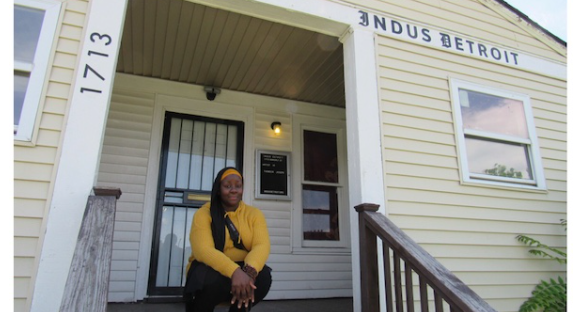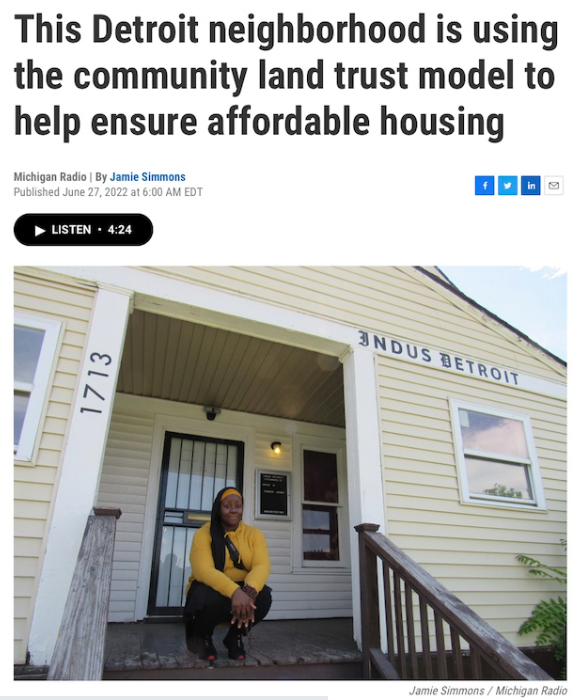“I live in the most awesome neighborhood in the world. I am blessed and fortunate to have a DREAM artist residency on this street. This house has literally changed my life. It’s given me a haven for my children and a place to call home during the pandemic.”
From festivals to weddings to Eid celebrations and community memorials, Sister Tasneem’s photography has captured so many moments of true Detroit history. It was an honor having her join the neighborhood as the first artist-in-residence at Indus Detroit. And now, we’re happy she’ll be staying our neighbor—she’ll be moving into a renovated home just around the corner.
Over the years, our neighborhood has been ravished by foreclosures and bad appraisals. As our partner Eric Williams from the Detroit Justice Center shared in the radio segment, “People who are renting a home on a community land trust or who are leasing the land there, are much less likely to go into foreclosure than people residing in other circumstances.” That’s why this is timely and critical.
In the interview, our executive director Mark Crain is quoted critiquing speculators who hold onto property in Detroit neighborhoods and says, “We think there’s a big return now.” For DREAM, that return isn’t necessarily financial, it’s helping more people like Sr. Tasneem call our neighborhood home.
We’re building a model that provides homes for families, stabilizes our housing and raises its values, while locking in permanent, affordable housing to protect our neighborhood from gentrification. Even as we’re scaling this work, we’re also doing this house by house—with the help of our community.
Whether it’s to keep a gem like Sister Tasneem in our neighborhood or helping a new couple start life together close to their mosque and community center, our community’s support is what makes this work and service possible. Today, we’re asking for your help again.
Peace & Blessings,
The Dream of Detroit Team
P.S. The NPR interview also touched on the ongoing mortgage crisis for Black Detroiters, with Crain saying, “What we’re seeing is that they are predominantly going to white folks.” Here, we were referencing Detroit Future City data that indicates 27% of Black applicants are denied mortgages in the city today, compared to just 13% of whites. Upper-income Black applicants are actually rejected at a higher rate than moderate-income white applicants, 23% to 20%. Under these circumstances, our work for housing equity and justice are absolute necessities.



